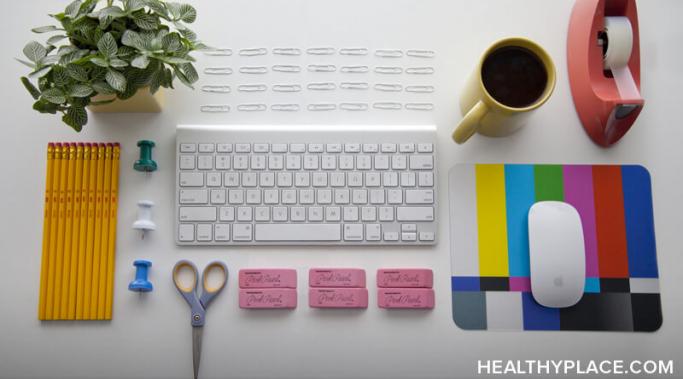We are right on the verge of Thanksgiving and the holiday season. It's such a great time to reflect, not only on the year overall but also on how my ability to cope with my anxiety has progressed. A helpful strategy that I've really taken the time to focus on this year has been practicing gratitude and how feeling thankful has helped me manage my anxiety levels.
Treating Anxiety
Staying organized helps my anxiety because one of the things that can be challenging, is dealing with a lack of control. Even though I know that I can't control everything, it becomes difficult when I feel like I am in a chaotic environment. It also becomes overwhelming when situations occur that I don't have control over and so, along with it, comes uncertainty.
Public speaking is an act that has typically triggered my anxiety. I had to work on it for several years to get to a point where I could manage my public speaking anxiety and anxiety in general.
I've heard a lot about self-sabotaging or being self-destructive when it comes to anxiety, but somewhere along the way, I've convinced myself that I don't do that. I've convinced myself that I don't do things that prevent me from taking advantage of an opportunity or being in line with my goals. Has this been a form of self-sabotage in and of itself? I honestly believe so. Because when I take the time to think about it, I can think of many times in my life when I've purposely taken actions -- or not taken actions -- that weren't consistent with things I have wanted for myself, and anxiety was behind it.
When you deal with anxiety, it's hard to stop yourself from also feeling sad and hopeless. There are a few reasons for this, and for myself, I've found that this has happened to me because dealing with constant anxiety can be extremely exhausting. But I've also found that this has happened to me because the overwhelming feelings and constant worry that go along with anxiety are negative feelings by nature. It's hard to feel positive feelings about anything when you're overcome with anxiety. (Note: This post contains a trigger warning.)
As someone with an anxiety disorder, trying to enjoy life is not easy. My anxiety stole a lot of the fun I could have had in high school, and at university, like all the clubs I wanted to join but decided not to because I was uncomfortable. Day-to-day activities were a struggle. It made my life two times harder and got me overthinking every social interaction I had. It kept me up at night, made me worry about everything, and made me doubt myself. My anxiety made me feel like life was not worth living. (Note: This post contains a trigger warning.)
I've found that my mind looks for logic when I'm anxious. In my experience, one of the difficult things about anxiety is dealing with the lack of control that accompanies it, especially when I feel like I can't make sense of what is happening in the situation I am in. When I feel this lack of control, I become completely overwhelmed and feel as though I don't have control over the circumstances within my environment.
Moving abroad is no easy feat. Saying goodbye to your family and friends and dealing with the culture shock can be difficult. I moved to the United States when I was 19, and it was one of the hardest things I have done. The uncertainty of settling abroad was extremely anxiety-inducing for me. I'm soon moving to yet another country, and from what I've previously experienced, I now feel more confident moving abroad. In this blog post, I'll share some tips for coping with anxiety when moving abroad.
Over the years, I have been able to cope with my anxiety much more effectively than I did when I was younger; however, there are still plenty of times when my anxiety has affected my self-worth.
Have you heard of worry time? As someone who struggles with anxiety, I have been getting more anxious about the future than ever. This fear and worry seep into everything I do at all times of the day. From waking up to going to work and then back to bed, my mind is constantly filled with anxious thoughts about what the future will look like for me. This interferes with my daily life and makes me feel mentally exhausted. To cope with this, my therapist recently introduced me to a technique that involves allocating a "worry time." This involves me picking out a time during my day that is specifically dedicated to worrying. While this sounds like a strange concept, it has greatly benefitted me.









